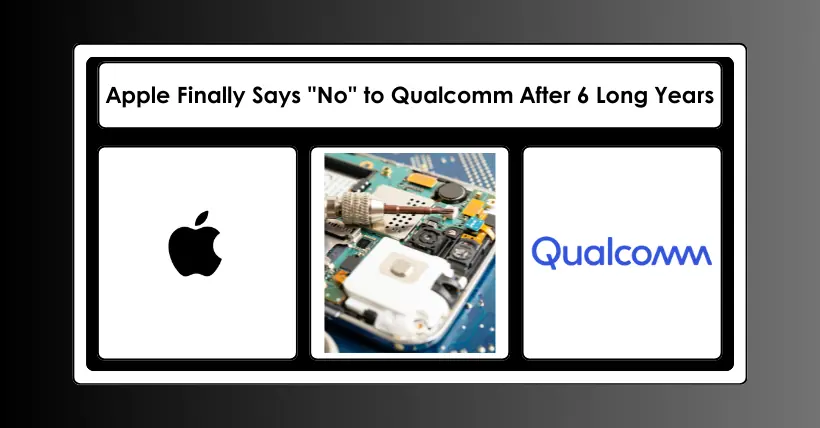Those who are familiar with Apple know that its supply chain management is highly successful, with many supply chains being competitive to ensure quality and control. For example, in the case of OLED screens, there are multiple suppliers like Samsung, LG, and BOE.
When it comes to baseband chips, Apple previously used Qualcomm’s chips, but didn’t want to always be at Qualcomm’s mercy. So, Apple later collaborated with Intel, bringing Intel in to create competition.
However, in the 5G era, Intel collapsed and abandoned the 5G baseband chip business, which left Apple in a passive position. Apple had already been at odds with Qualcomm, and now had to bow to Qualcomm again.
In frustration, Apple made a bold move in 2019, spending $1 billion to buy Intel’s entire baseband chip division, including technology, patents, and 2,200 employees.
Apple’s plan was clear: since Intel failed, Apple would take over the task and develop its own baseband chips, no longer letting Qualcomm control them.
Apple’s goal was to develop its own 5G baseband chip within two years, aiming to say no to Qualcomm by 2021 with its self-developed 5G baseband chip.
However, Apple clearly overestimated its capabilities and underestimated the difficulty of baseband chips. It didn’t succeed in 2021, nor in 2022, and even in 2024, it still hasn’t developed it.
In fact, over the years, Qualcomm has been nervous, expressing concerns in its annual reports about potentially losing Apple as a customer. However, these concerns never materialized, and Apple continued to rely on Qualcomm’s baseband chips year after year.
Now, there is concrete news: Apple’s baseband chip is finally coming in 2025, and there will be no more delays.
According to insiders, Apple’s 5G baseband chip will first be used in the iPhone SE 4 next year. Since the iPhone SE 4 is Apple’s entry-level model, it will naturally serve as a testing platform for Apple’s new baseband chip. Any issues that arise won’t significantly affect the larger picture.
If the testing goes smoothly on the iPhone SE 4, the chip will then be used in the iPhone 17 next year. Of course, initially, Apple won’t completely replace Qualcomm’s 5G baseband with its own. It will only make a partial switch.
Over time, however, Apple will gradually phase out Qualcomm’s 5G baseband chips and replace them entirely with its own. In the future, it is even possible that Apple will integrate the 5G baseband directly into the A-series chips, especially since TSMC’s CoWoS packaging has become incredibly popular.
The only uncertainty is whether this is just a rumor or if it will actually happen. If it does, after six years of effort, Apple will finally have the courage and ability to say no to Qualcomm.
Related:
- Apple M5 Series Leak: CPU-GPU Separation, N3P Process
- TSMC 3nm Wafer Price Hits $18,000, Over 300% Increase
- iPhone 17 Air Specs Leaked: 5.5mm Thin, Single Camera

Disclaimer:
- This channel does not make any representations or warranties regarding the availability, accuracy, timeliness, effectiveness, or completeness of any information posted. It hereby disclaims any liability or consequences arising from the use of the information.
- This channel is non-commercial and non-profit. The re-posted content does not signify endorsement of its views or responsibility for its authenticity. It does not intend to constitute any other guidance. This channel is not liable for any inaccuracies or errors in the re-posted or published information, directly or indirectly.
- Some data, materials, text, images, etc., used in this channel are sourced from the internet, and all reposts are duly credited to their sources. If you discover any work that infringes on your intellectual property rights or personal legal interests, please contact us, and we will promptly modify or remove it.








